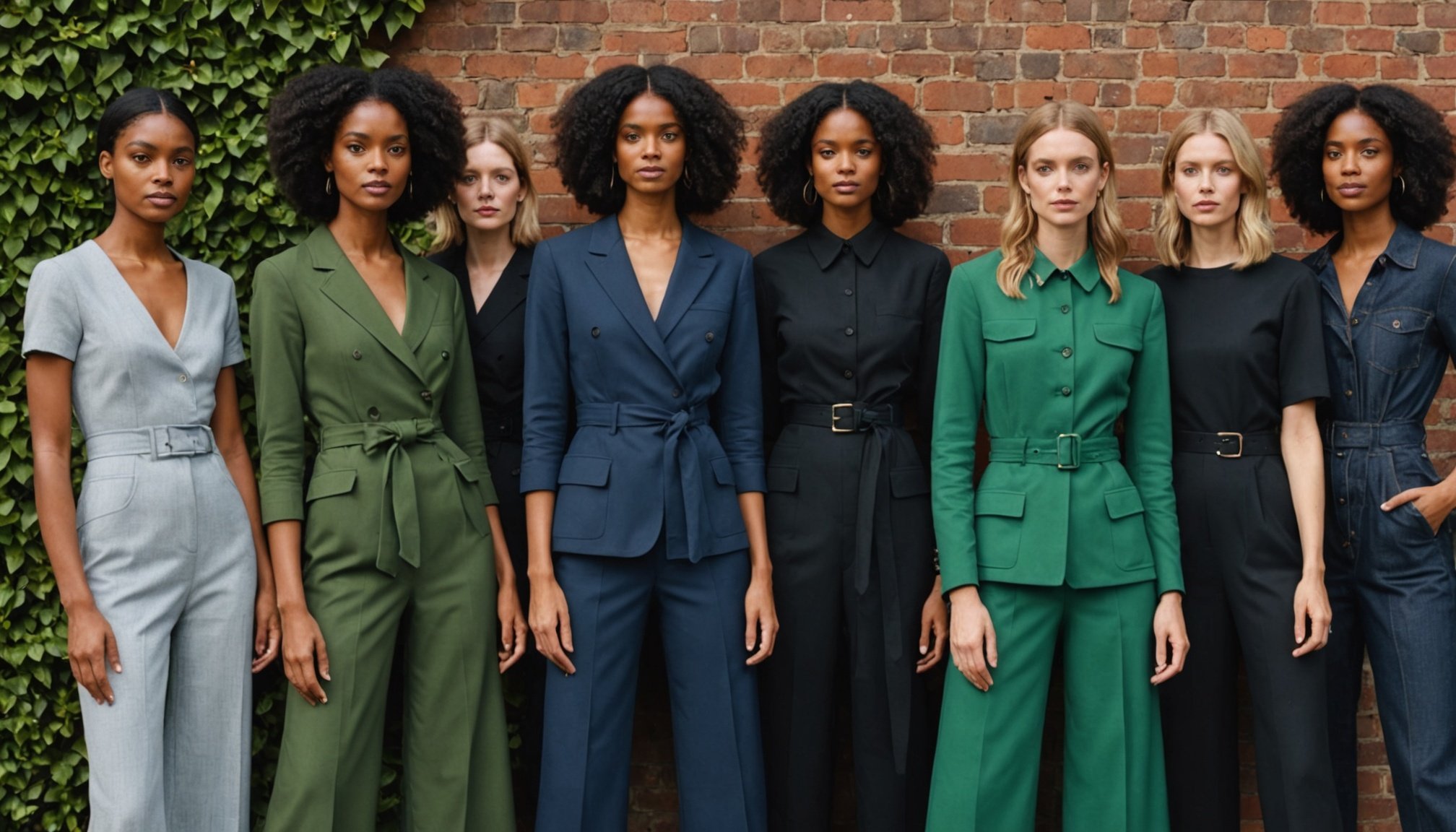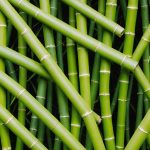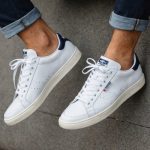Overview of Vegan and Cruelty-Free Fabrics in UK Fashion
Vegan fabrics, also recognized for their cruelty-free fashion attributes, are materials produced without animal-derived components. Instead of traditional materials like leather and wool, vegan alternatives include plant-based fibers such as cotton, hemp, or innovative materials like pineapple leather and mushroom leather. These fabrics eliminate animal exploitation and align with sustainable fashion values.
The significance of vegan and cruelty-free fashion is rooted in ecological and ethical concerns. Traditional fabric production often involves practices harmful to animals and the environment. In contrast, vegan materials are designed to reduce these negative impacts by promoting humane and eco-friendly alternatives.
Also to discover : Top Eco-Conscious Outerwear Brands in the UK: Discover Sustainable Style!
In recent years, the UK fashion industry has witnessed a growth in sustainable fashion trends. Consumers are increasingly aware of the origins of their clothing and the industry’s impact on the planet. With consciousness rising, brands are pivoting towards sustainable materials to cater to this expanding demand.
UK consumers are demonstrating a robust interest in ethical fashion choices, driving retailers to expand their offerings of cruelty-free products. As this trend continues, it’s expected to influence the broader global fashion landscape, encouraging widespread adoption of sustainable materials and responsible production practices. This shift empowers consumers to make informed, compassionate decisions.
Also to read : Top UK Sustainable Activewear Brands for Eco-Conscious Fitness Enthusiasts
Top Vegan Fabrics Revolutionizing UK Fashion
In the quest for sustainable fashion, Tencel and Lyocell have emerged as popular choices among top vegan fabrics. Derived primarily from wood pulp, these materials are celebrated for their soft texture and durability in fashion garments. The production of Tencel not only involves less water than conventional cotton but also employs a closed-loop system, where solvents are recycled with minimal waste. Notably, UK brands like H&M and Phase Eight incorporate Tencel in their collections, foregrounding its environmental benefits.
Piñatex, also known as pineapple leather, is another innovative material making waves. Created from pineapple leaf fibres, Piñatex offers a sustainable alternative to traditional leather. Its production champions low environmental impact and provides additional income for pineapple farmers, transforming agricultural waste into a valuable resource. Brands such as Hugo Boss and Altiir are at the forefront of utilizing this unique material, reshaping perceptions within the leather industry.
Recycled polyester presents a robust solution for reducing fashion’s ecological footprint. Sourced mainly from recycled plastic bottles, this material aligns with the principles of circular fashion by encouraging waste reduction and sustainable usage. Esteemed UK brands like Marks & Spencer and Finisterre use recycled polyester in their products. This choice not only minimizes landfill waste but also paves the way for enhanced recyclability, signifying a step towards holistic sustainability.
Benefits of Using Vegan and Cruelty-Free Fabrics
Choosing vegan fabrics offers numerous advantages beyond just fashion statements. At the forefront is their environmental impact. Vegan fabrics typically require fewer resources, such as water and energy, to produce compared to conventional materials like leather or wool. This results in a substantially smaller carbon footprint. For instance, plant-based fabrics, as well as those created entirely from recycled materials, further minimize harmful emissions.
Additionally, these materials align closely with ideals of ethical fashion. The production processes for vegan fabrics often emphasize sustainability and fairness, advocating for a fashion industry that respects both the planet and its inhabitants. This approach frequently involves using renewable resources and prioritizing the well-being of workers.
Beyond environmental and ethical benefits, vegan fabrics contribute significantly to animal welfare and conservation efforts. By eliminating the need for animal-derived materials, these fabrics protect countless animal lives, safeguarding their natural habitats. This shift not only curtails the exploitation of animals but also promotes biodiversity by reducing habitat destruction associated with traditional textile manufacturing.
The adoption of vegan fabrics offers a pragmatic solution for individuals seeking fashionable choices that uphold their ethical and environmental values. Embracing these alternatives fosters a more sustainable and conscientious fashion industry.
Brands Championing Vegan and Cruelty-Free Fabrics
In the realm of UK ethical brands, several sustainable fashion brands are leading the charge by adopting vegan and cruelty-free fabrics. These brands are paving the way with their unique selling propositions, focusing not only on aesthetics but on a profound commitment to sustainability.
Overview of Notable Brands
One standout example is Stella McCartney, renowned for its innovative use of cruelty-free materials while maintaining high-fashion appeal. By refusing to use leather or fur, it sets a robust precedent in the industry. Another trailblazer, People Tree, is celebrated for its environmentally friendly business practices and support of fair-trade artisans. Their garments reflect an intersection of ethical labor and sustainable materials.
Emerging Designers to Watch
The UK fashion scene is witnessing a wave of emerging innovative designers passionately focusing on vegan materials. Brands like Beyond Skin showcase a range of trendy footwear created from recycled materials. These designers are bringing fresh innovations into the market, such as biodegradable fabrics and plant-based leathers, broadening the potential for cruelty-free fashion.
These forward-thinking designers represent the future of UK fashion, demonstrating that chic and sustainable designs can coexist. The rise of such emerging talents signals a shift towards more ethical practices and inspires consumers to support more sustainable choices in their fashion purchases.
Future Trends in Vegan and Cruelty-Free Fabrics
As the future of sustainable fashion unfolds, significant developments are poised to transform the industry. With an increased focus on eco-friendly trends, fabric technology is witnessing groundbreaking innovations. Researchers are constantly developing materials that mimic the texture and appearance of traditional fabrics without environmental drawbacks. For example, advancements in bio-fabrication enable the creation of leather-like materials from lab-grown microorganisms, reducing reliance on animal products.
Shifts in consumer behavior also play a crucial role in these developments. Today’s consumers are more environmentally conscious and demand transparency about the origins of their clothing. This shift in mindset encourages brands to adopt sustainable practices, integrating eco-friendly trends into their core strategies. As a result, sustainable fashion transitions from niche to mainstream, paving the way for wider acceptance in the UK fashion industry.
Regarding industry predictions, it’s anticipated that vegan and cruelty-free fabrics will become standard rather than a specialty. Companies that invest in eco-friendly materials stand to gain a competitive edge as ethical consumerism continues to rise. Moreover, collaborations between technology experts and fashion designers will likely spur further innovations, offering the industry fresh dimensions of functionality and style. As these trends evolve, they may redefine the landscape of fashion, shaping a sustainable future for the industry.
Sustainability Efforts and Ethical Considerations
Over recent years, the fashion industry has increasingly embraced sustainability and ethical production. This shift responds to growing consumer demands for eco-conscious practices and transparency in manufacturing processes. Key initiatives focus on reducing environmental impact and promoting fair labour conditions.
Sustainability in fashion often begins with the choice of materials. Organic cotton, recycled polyester, and plant-based dyes are increasingly popular as they offer reduced environmental impact compared to traditional textiles. Certifications and standards such as GOTS (Global Organic Textile Standard) and Fair Trade Certified play a crucial role. They ensure that products meet rigorous sustainability and ethical benchmarks, offering consumers a trustworthy marker of commitment to eco-conscious practices.
A transparent supply chain is vital for ensuring ethical standards are met throughout production. Many companies are now prioritising complete openness about their processes, from the source of their materials to the labor conditions in their factories. Consumers are encouraged to look for brands that provide insight into their supply chain and demonstrate a commitment to improving working conditions and environmental standards.
The importance of fashion sustainability cannot be overstated as it actively contributes to an equitable global industry. Advocating for ethical production not only enhances the brand image but also meets the rising consumer expectations for responsible and fair manufacturing.











